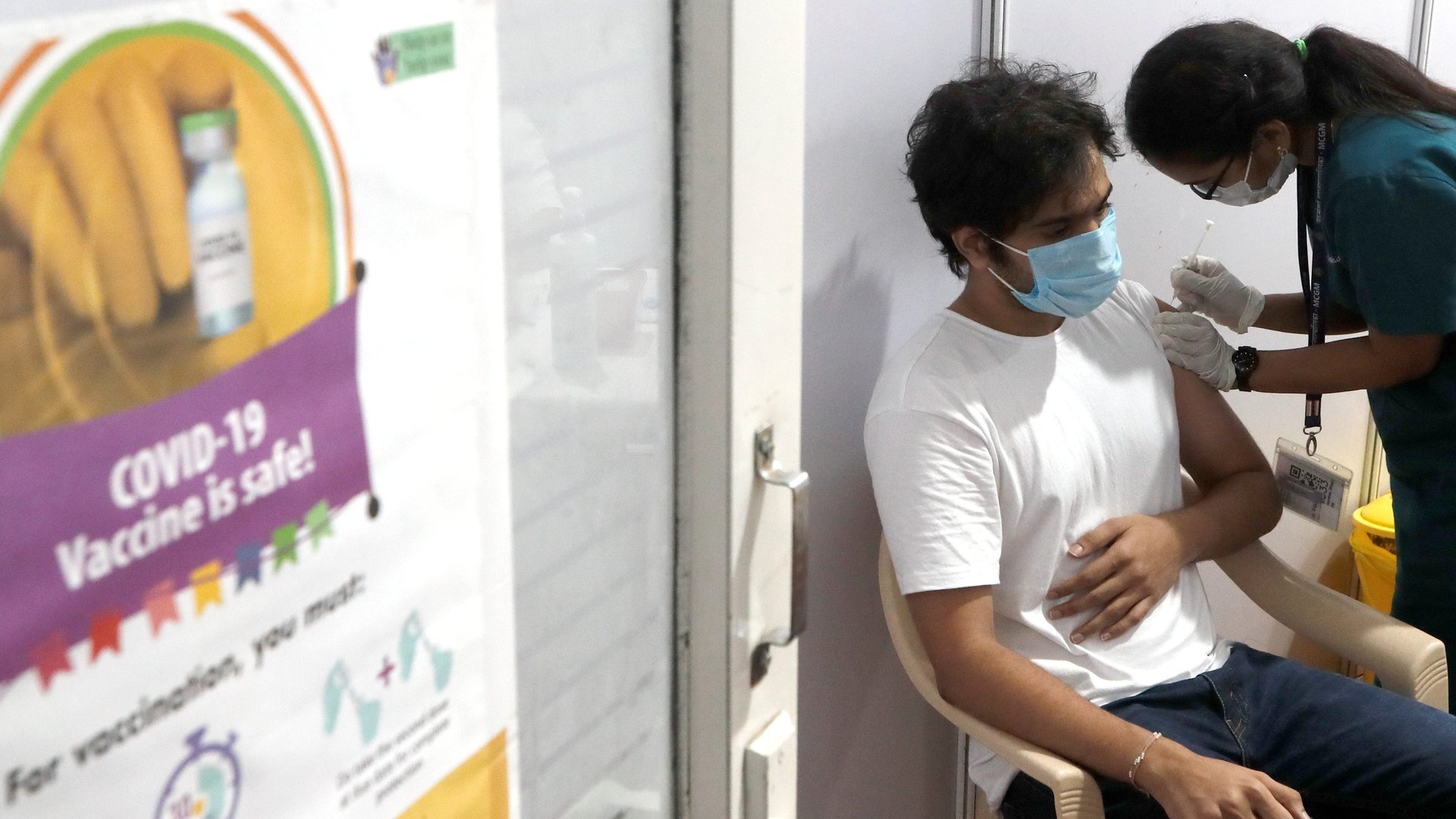India’s largest IT company has a vaccination plan to gets its employees back to office
India’s largest IT company appears to be taking cues from American tech firms when it comes to Covid-19 vaccinations.


India’s largest IT company appears to be taking cues from American tech firms when it comes to Covid-19 vaccinations.
Tata Consultancy Services, which employs over 500,000 people, has set up a vaccination policy under which it plans to allow only vaccinated employees to work from its offices. The only exception to this rule will be those who do not get vaccinated due to medical reasons and can produce a doctor’s certificate to support the same.
“I set up a vaccination policy three months ago where we are saying we want everybody to be vaccinated,” chief human resources officer Milind Lakkad told Quartz in an Aug. 24 interview. “The intent is to have people be vaccinated before they can come to the office for sure.”
To achieve this goal, TCS has partnered with scores of hospitals where its employees can get vaccinated. Over 90% of TCS employees and their families have already received the first dose, and Lakkad expects that by Sept. 30, they will have received their second doses, too.
Several companies in the US including telco AT&T, investment firm BlackRock, consultancy Deloitte, fast-food chain McDonald’s, as well as tech giants like Facebook, Google, Microsoft, and Netflix, have made it mandatory for employees to be vaccinated if they wish to work from offices. But in India, companies have not made vaccines compulsory so far.
This is probably because a mere third of the Indian population has managed to get at least one shot so far. In comparison, over 73% of US residents have received at least one dose.
TCS’ vaccine policy is almost mandatory
To achieve its target, TCS has invested in providing vaccination for its employees in the most remote parts of the country, Lakkad said.
Since the pandemic hit in March 2020, the company’s employees have moved out of the two dozen cities where it has campuses and gone home to remote locations. To vaccinate its teams, the company conducted vaccination drives in over 125 cities across India.
“People are not only in Mumbai, Pune, and Delhi. They’re in Bilaspur, Gwalior, Kottayam—small towns where their parents are,” said Lakkad. “How do we make them aware of (the) importance of this (vaccination), and how do we create vaccination centre close to them and get them vaccinated, has been a huge effort over the last four months.”
Meanwhile, the company is using technology to closely monitor the movement of workers at offices.
“We have a product which tells you who can come and who cannot come not just based on health, but also where they live…whether they’re in red (containment) zone. It’ll check all the factors and say yes, the employee can come or no, they cannot come,” said Lakkad.
People who haven’t taken the vaccine—most for valid medical reasons and a small fraction who skipped it by choice—will also face more hurdles. The unvaccinated will need to provide an RT-PCR test 72 hours before coming in to work. Once in the office, how long they are there and where on the premises they’ll be allowed will be strictly controlled.
These curbs are for the greater public good, the HR head reasons.
“For me, vaccination and coming to office are two different tracks. I’m not trying to connect them. Vaccination is done for people’s health more than anything else,” said Lakkad. “And it’s so that when they’re coming to work, they don’t have health issues or create issues for their colleagues.”